Coronavirus: Birmingham lockdown restrictions increased
- Published
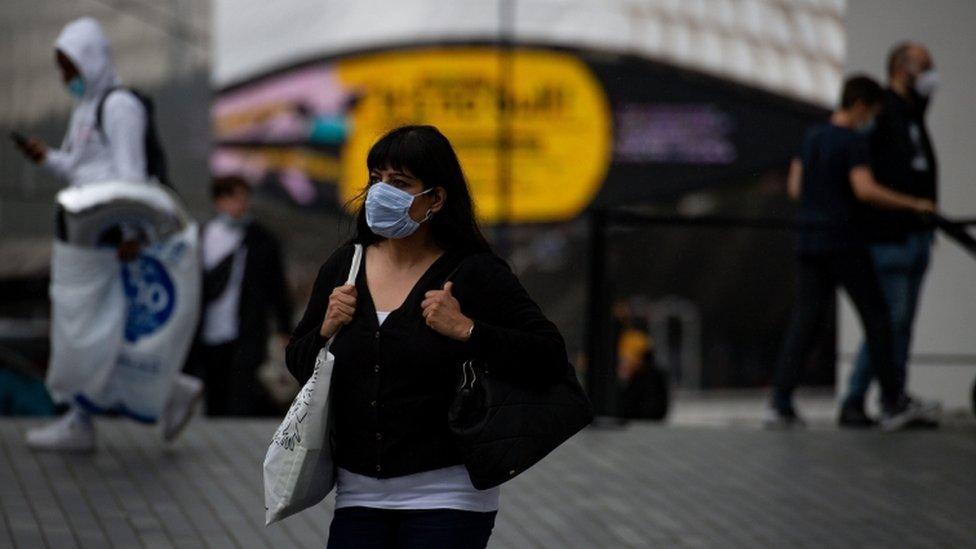
Restrictions will begin in the second city on Tuesday
Households in Birmingham have been banned from mixing in new lockdown measures announced following a spike in coronavirus cases.
The rate of infection has more than doubled in the city in a week to 90.3 cases per 100,000.
The measures also cover neighbouring Sandwell and Solihull, affecting more than 1.6 million people in total.
The restrictions will begin on Tuesday, it was announced at a regional meeting of council leaders.
Health Secretary Matt Hancock said: "We never take these decisions lightly but social gatherings can spread the virus quickly and we need residents to abide by the new rules to break the chains of transmission."
Under the new rules, people are banned from meeting others who are not in their household or support bubble, indoors or in private gardens.
Birmingham City Council confirmed people could still go out to shops, restaurants and other venues, in a maximum group of six from more than one household, but told people to be "vigilant".
Birmingham residents have reacted to the new lockdown restrictions
Council leader Ian Ward said data showed "the infection rate has risen mainly due to social interactions, particularly private household gatherings".
Following earlier confusion around restrictions for the hospitality sector, Mr Ward tweeted, external: "To clarify the situation, we have now agreed with government that the household restrictions which will come into force next Tuesday will not affect the hospitality sector (bars restaurants and cafes)."
He said: "You can continue to go to restaurants and pubs in a maximum group of six so that would allow you to meet another household.
"The reason for this difference is the data and information is telling us it's household gatherings together in one home where they are spreading the virus."
West Midlands mayor Andy Street said the restrictions were not about "prevention of schools, workplaces, transport" but about mixing of households.
The new rules on household mixing in the three areas will run alongside wider restrictions coming into force in England on Monday, banning social gatherings of more than six people.
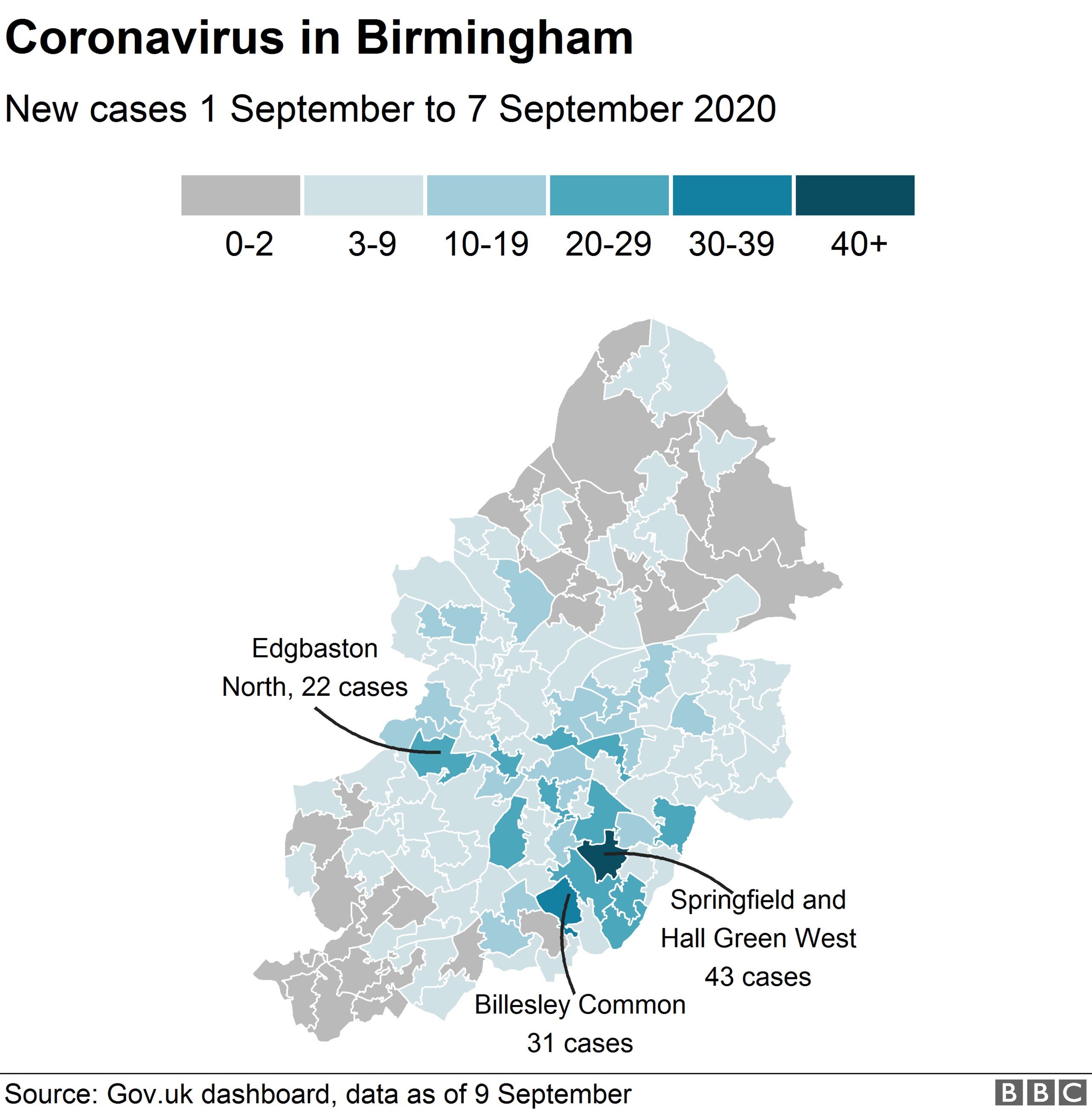

Elsewhere in England on Friday, it was announced:
The government's latest R number is between 1 and 1.2 which means the epidemic is growing again.
A study of thousands of people in England found cases doubling every seven to eight days with a marked rise in the North and among young people.
Merseyside has been added to Public Health England's list as an "area of concern" after a rise in coronavirus cases, regional mayor Steve Rotheram has said.
Sunderland has also been added to the watchlist with a warning the city is "close" to a local lockdown.
Restrictions in Leicester will be eased from Tuesday as casinos, bowling alleys and soft play areas are allowed to reopen.
Leeds has been upgraded to an "area of of enhanced support" following a continued rise in coronavirus cases and Sheffield has been added to the list as an "area of concern".

Analysis
by Rob England, BBC England data unit
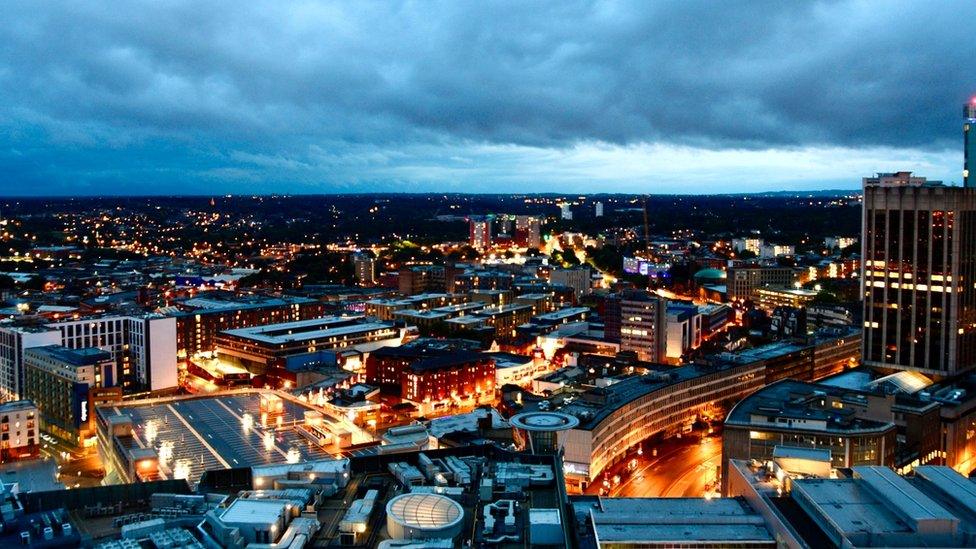
Birmingham has one of the highest infection rates in England
Birmingham's coronavirus infection stands at 90.3 cases per 100,000 people as of the week to 8 September. The rate has more than doubled from 35.9 per 100,000 the previous week.
According to the government's more local data, Birmingham is home to five of the top 10 neighbourhoods with the highest number of positive cases in England.
Many of these areas saw spikes in the latest week of available data, compared to the week previously - reflecting the overall trend for the city.
Springfield and Hall Green West, in the south east of the city, had the most cases with 42, a sharp rise on the previous full week, when only 11 were recorded.
Wake Green East and Moseley Bog, just south of Springfield, went from recording between 0 to 2 cases for the past four weeks, to 29 most recently.

Mr Ward said the virus has not "weakened", calling it "relentless".
With 892 cases in the latest seven-day period, he said there had been "an increase of hospital admissions with Covid-19 and an increase in cases in care homes".
He added: "If a venue doesn't look safe and you're not asked for your contact details, take your business elsewhere."
Mr Ward also said there were currently no plans to postpone the start of the academic year for university students, with thousands expected back to the city's five universities in the coming weeks.
Chief Constable of West Midlands Police Dave Thompson said he understood it had been a "tough time", but urged people to act responsibly.
Esabella's restaurant in Warwick Road, Solihull, has closed voluntarily after 25 people tested positive for the virus, one of them a staff member.

Bethany Kendle is due to move back to Birmingham and start a new job
Bethany Kendle is due to move back to Birmingham for a new job after spending lockdown with her parents in Hertfordshire.
The 22-year-old, who celebrates her 23rd birthday on Saturday, said she had planned to see old friends from her time at university.
"It's frustrating, everybody was just starting to spread their wings and it's all taken away again," she said.
"I'm living in a flat with two friends from university, so it's not the end of the world."

SOCIAL DISTANCING: What are the rules now?
SUPPORT BUBBLES: What are they and who can be in yours?
LOOK-UP TOOL: How many cases in your area?

Ms Kendle, who graduated from the University of Birmingham earlier this year, said she found the rules "quite vague".
"People don't really know what's going on," she said. "It's a difficult line to draw, especially when different parts of the country have different rules."

'A critical moment'
by Rob Mayor, BBC Radio WM political reporter
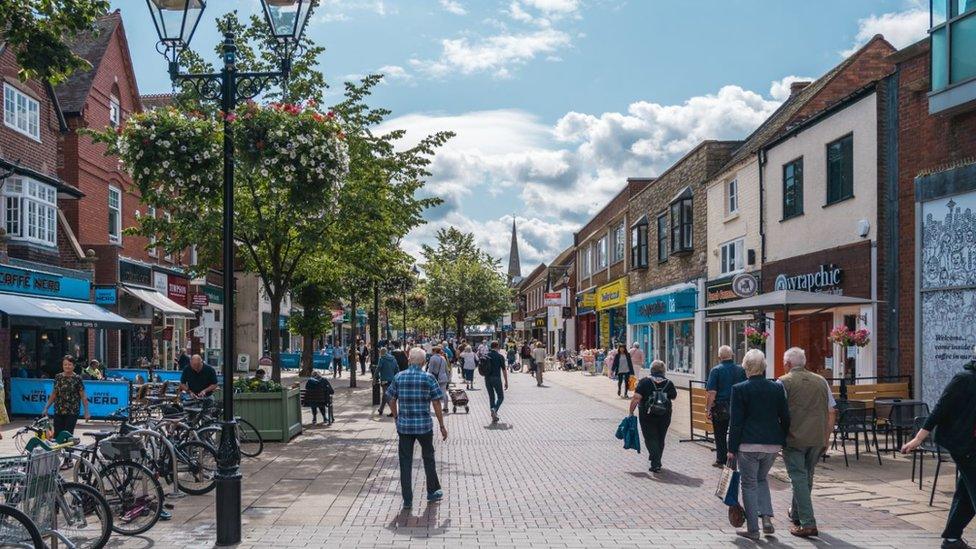
Solihull and Sandwell are also affected by the new restrictions
The new restrictions are designed to stop the transmission of the virus in people's homes which is thought to be behind the increase in cases across the West Midlands conurbation.
We'll know if it's working if the infection rate starts to drop over the next few weeks.
Health officials have described this as a critical moment in the battle against the virus and hospitals are again starting to see small numbers of seriously ill Covid-19 patients.
Police will move from an approach of engagement to enforcement of the rules, but with more than 1.6 million people now covered by these restrictions, there will have to be an element of trust that they can be followed.


Abby Stapleton is due to study psychology at Birmingham City University
Student Abby Stapleton, 19 and from Coventry, is due to move into halls of residence at Birmingham City University at the weekend and said the rise in cases had made her nervous.
"For the minute it is not too strict, I'm still able to move around for things that are necessities, but I'm nervous over catching it, it is a lot higher than Coventry," she said.

Follow BBC West Midlands on Facebook, external, Twitter, external and Instagram, external. Send your story ideas to: newsonline.westmidlands@bbc.co.uk , external
- Published11 September 2020
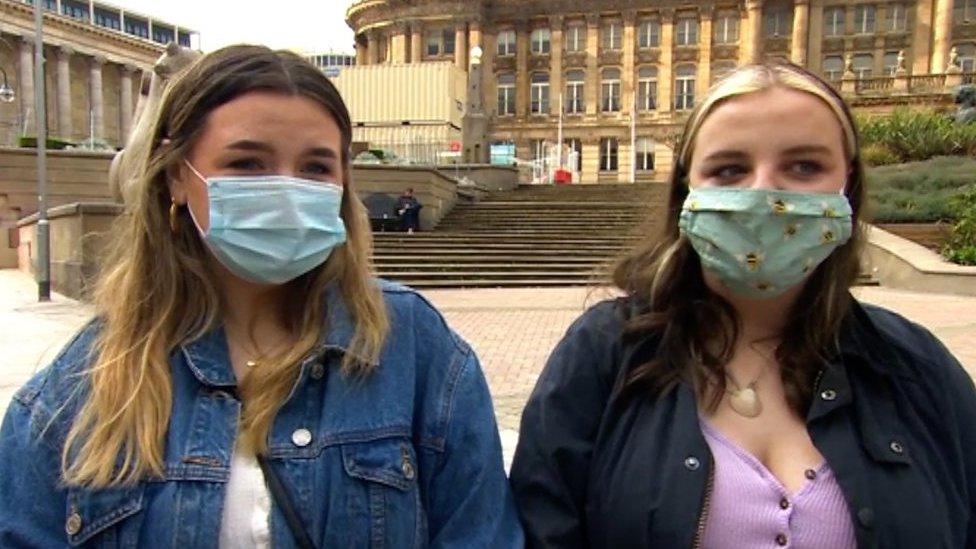
- Published11 September 2020
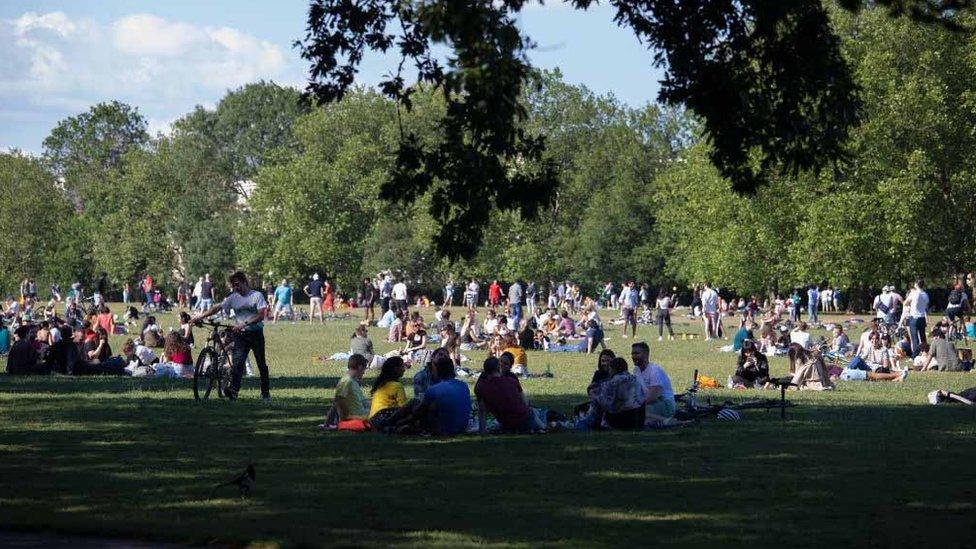
- Published4 November 2020
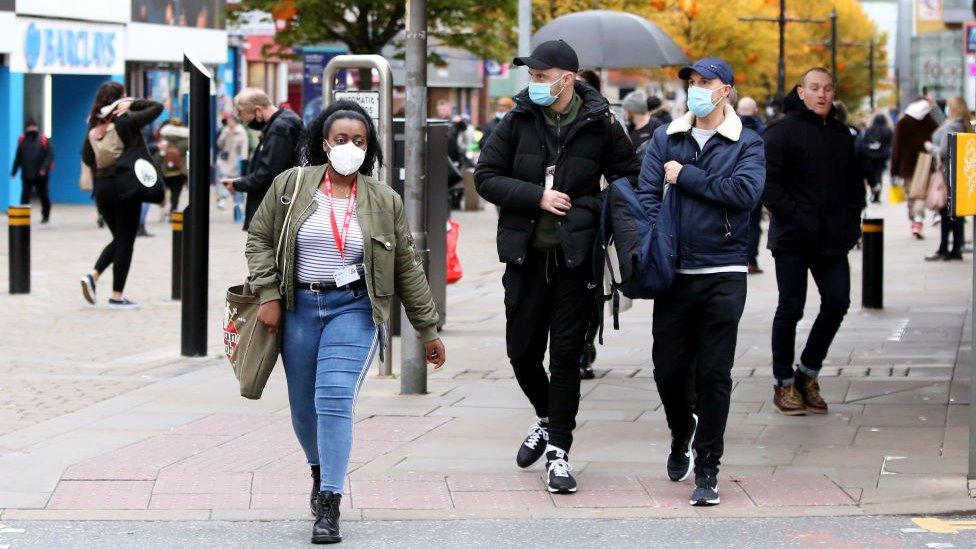
- Published9 September 2020

- Published9 September 2020
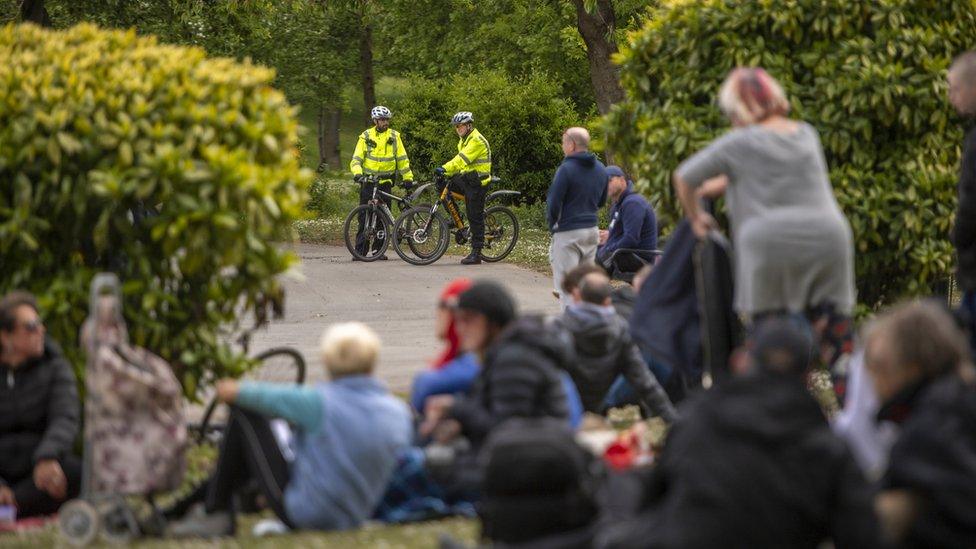
- Published4 September 2020
